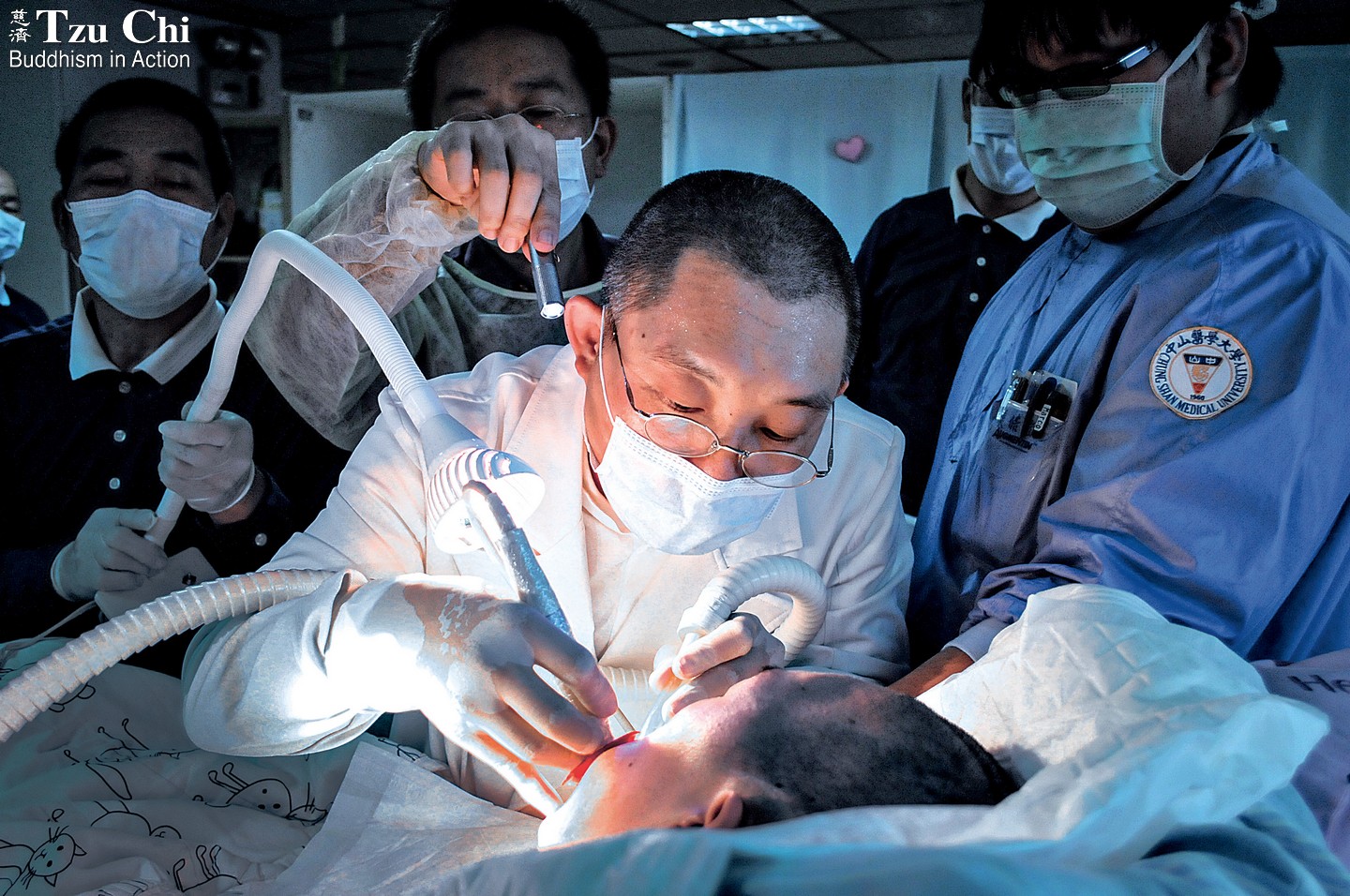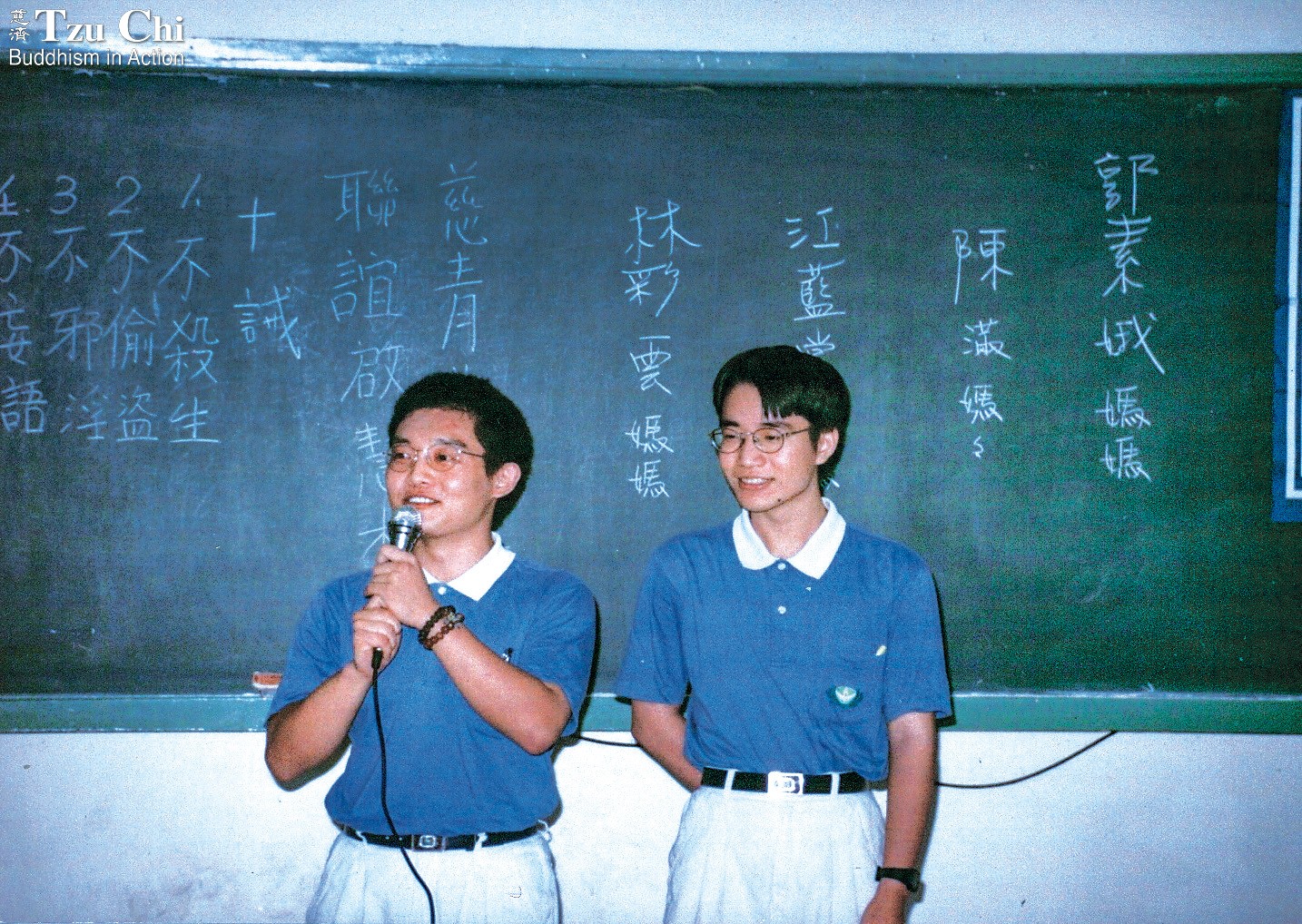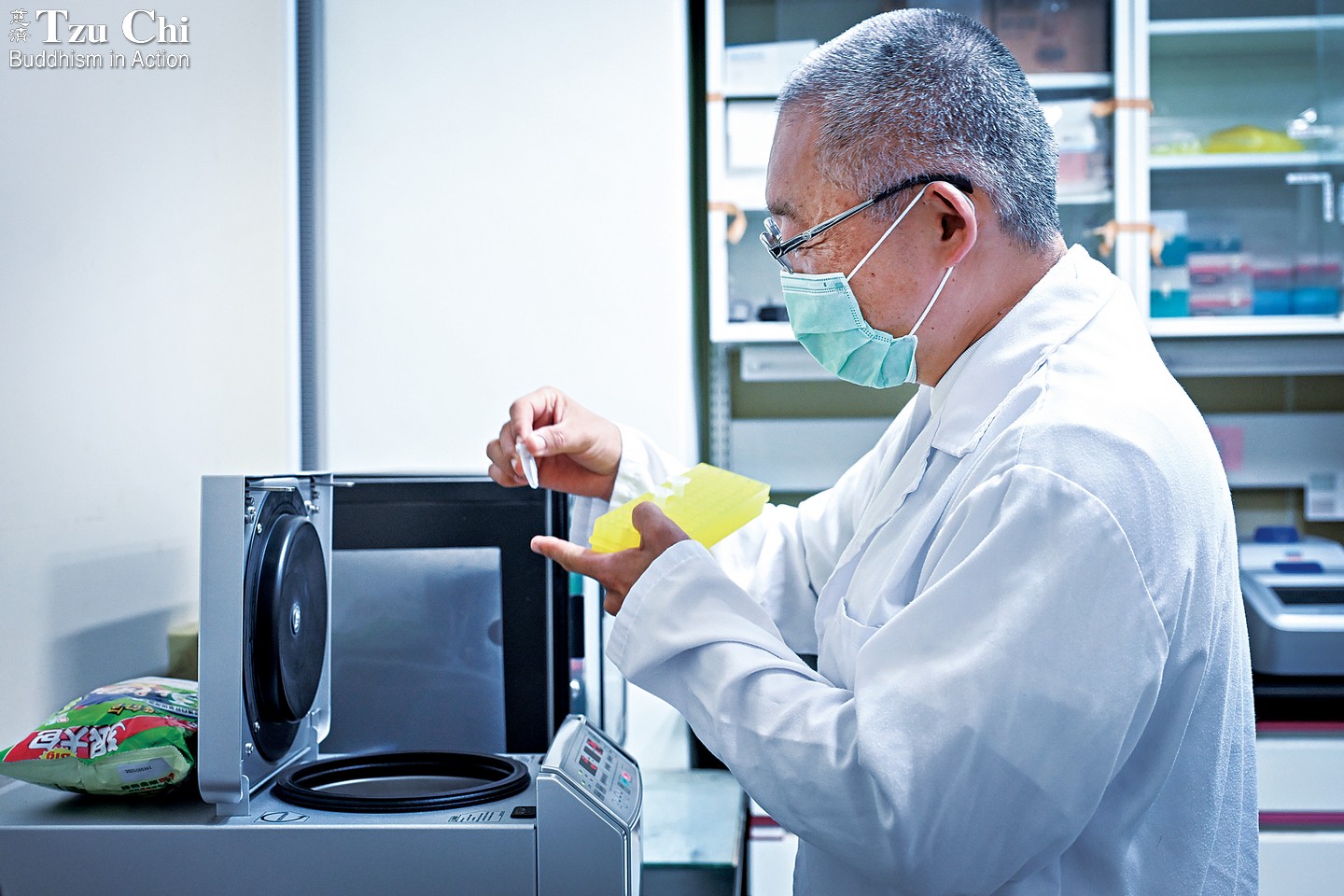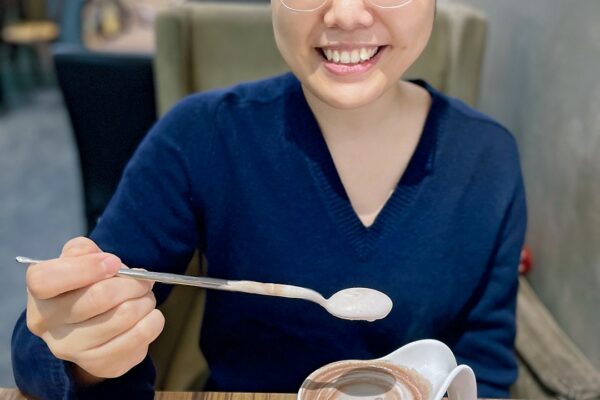By Zhang Li-yun
Translated by Wu Hsiao-ting
Dr. Lee Yi-pang’s path in dentistry is guided by compassion, service, and a mission to improve oral healthcare in underserved regions.

Dr. Lee Yi-pang provides dental care to a patient in a vegetative state at a care facility in Taichung, central Taiwan, in 2010. Xu Zai-fu
“
I chose to practice medicine in eastern Taiwan,” said Dr. Lee Yi-pang (李彝邦), “because, like many predecessors who settled here, I believed that every additional doctor meant an extra measure of help for this region, where medical resources were limited.”
Dr. Lee joined the dental team at Hualien Tzu Chi Hospital in 2012 and now leads Special Needs Dentistry there. He also heads the Institute of Oral Medicine and Materials at Tzu Chi University’s College of Medicine. It was established to cultivate faculty and develop teaching resources in preparation for a future dentistry department at Tzu Chi University and welcomed its first cohort of students in September 2024. Dr. Lee explained that eastern Taiwan, with its long and narrow terrain, faces an uneven distribution of dental professionals. Tzu Chi University aims to develop a comprehensive oral medicine system to train skilled practitioners and better serve the region’s residents.
Dr. Lee’s deep sense of mission as a medical professional is evident. What shaped his dedication, and what led him to join Tzu Chi?
Encountering Tzu Chi
Lee was born in 1974 in a rural area of Tainan, southern Taiwan, the eldest son of a dental technician, Lee Chin-cheng (李金城). Despite a modest income, his father placed great importance on education. He saved diligently and borrowed from relatives and friends to provide all four of his children with a higher education. He especially had high expectations for his eldest son, hoping he would become a doctor with his own practice. “Doctors earn good money, have social status, and command respect,” he said.
Fulfilling his father’s hopes, Lee gained admission to the dental program at Chung Shan Medical University in central Taiwan. During his first year, however, he was involved in a serious accident when his motor scooter was rear-ended by a car just outside the school gates. The impact was so severe that his scooter was totaled. When he regained consciousness in the hospital, he saw two female Tzu Chi volunteers in uniform standing at his bedside. His parents had not yet arrived, but the volunteers’ warm, comforting words immediately put him at ease.
As it happened, one of his classmates, Zhu Qing-xuan (朱清玄), had witnessed the accident. Zhu not only called for an ambulance but also informed his mother, Lin Yu-yun (林玉雲), a Tzu Chi volunteer. This marked the beginning of Lee’s connection with Tzu Chi. In gratitude for the kindness he received, he joined the Tzu Chi Collegiate Association. Moved by Dharma Master Cheng Yen’s arduous efforts to establish Hualien Tzu Chi Hospital, he often volunteered there during winter and summer vacations with fellow Tzu Chings (members of the collegiate association).
On one such occasion, Tzu Chi volunteers invited Lee and his fellow Tzu Chings to help bathe a care recipient at his home. This man, paralyzed from a work accident in his 20s, had been bedridden for nearly 20 years. His elderly parents, both in their 70s, struggled even to turn him over, let alone bathe him. Seeing their need, Tzu Chi volunteers regularly visited them.
At the man’s home, Lee and the others, following the volunteers’ guidance, carefully lifted the man and carried him to the bathroom for a shower. The experience left a profound impact on him. “That was the first time I had seen a person completely naked in front of me,” he recalled. “Taking a shower is effortless for most of us, but for this patient, it was an immense challenge. It made me realize how easily we take simple actions for granted and how witnessing suffering helps us appreciate our blessings. That experience has stayed with me ever since.”
He also remembers the words of senior volunteer Yan Hui-mei (顏惠美): “When you sing to patients and bring them joy, it’s as if half their illness is healed.” Through his time at the hospital, Lee realized that his volunteer work could ease a patient’s suffering. Offering love and care required little from him, and yet it brought immense fulfillment. It was then that he became certain—Tzu Chi would be his lifelong path.
Lee Yi-pang speaks at a Tzu Chi Collegiate Association event in 1992 as a student at Chung Shan Medical University. Courtesy of Lee Yi-pang

A calling in special needs dentistry
During his internship at Chung Shan Medical University Hospital, Lee participated in Tzu Chi’s relief distributions in response to the devastating 9/21 earthquake that struck Nantou, central Taiwan, in 1999. He also joined a Tzu Chi program that provided emotional support to quake survivors. While helping those in need, he experienced the warmth of the large Tzu Chi family.
He became an attending dental physician in 2003. Two years later, he began pursuing a doctoral degree in oral medicine at his alma mater. With his PhD advisor Dr. Chou Ming-yong’s (周明勇) recommendation, he went to Japan to study home-based oral healthcare for individuals with disabilities in 2006. He later applied this expertise to his volunteer work. Having previously joined the Tzu Chi International Medical Association team in central Taiwan, he began serving patients in a vegetative state in 2008 at a Taichung care facility established by the Genesis Social Welfare Foundation.
Lee earned his doctoral degree in 2012. “I’m grateful to my alma mater for nurturing me,” he said, “enabling me to provide more comprehensive medical care to more people—especially long-term bedridden patients, individuals with disabilities, and those with spinal cord injuries.”
Finding purpose beyond wealth
Lee’s weekends are filled with volunteering: caring for the disadvantaged, providing disaster relief, and participating in free clinics. Among his many experiences, one of the most unforgettable came after the Wenchuan earthquake in China on May 12, 2008. The day before concluding his work with Tzu Chi’s relief and medical mission in the disaster area, he received word that his father was critically ill. Rushing back to Taiwan, he arrived just in time to see his father one last time.
As his father’s death drew closer, Tzu Chi volunteers from central Taiwan chanted the Buddha’s name as they accompanied him back to his hometown in Tainan. Local volunteers continued their support until the funeral was completed. Their care deeply moved Lee’s mother, inspiring her to become a Tzu Chi recycling volunteer and adopt a vegetarian diet, a practice Tzu Chi encourages to protect life and nurture compassion.
Lee remains deeply grateful for his father’s dedication to ensuring a worry-free upbringing for him and his siblings. Though his father had hoped his children would lead affluent lives, Lee believes that having enough to get by is sufficient—he does not want to be bound by money. He questions: why spend a lifetime accumulating wealth only to leave a large inheritance? “The true value of life lies in integrating passion with work to benefit others,” he affirmed.

In addition to being a practicing dentist, Lee also teaches and conducts research. Li Yan-yu
Advancing holistic dental care
One image remains etched in Lee’s mind: footage of Master Cheng Yen at the 1984 groundbreaking ceremony for Hualien Tzu Chi Hospital. After numerous challenges, the hospital was finally about to be built. Overcome with emotion, the Master bit her lower lip as tears welled up in her eyes. Her unwavering determination to bring medical care to eastern Taiwan’s underserved residents deeply inspired Lee. He had hoped to serve at Hualien Tzu Chi Hospital after earning his bachelor’s degree in dentistry but was unable to for personal reasons. In 2012, he was finally able to move to Hualien with his wife, Zheng Ya-rong (鄭雅蓉), and other family members to join the hospital’s medical team.
Lee sometimes encounters rare or challenging cases in his clinical practice and free clinics. Such cases prompted him to pursue further studies. In 2014, he obtained certification as a specialist in special needs dentistry from the Taiwan Association for Disability and Oral Health. To better serve his patients, his clinic at Hualien Tzu Chi Hospital is equipped with a wheelchair-accessible dental chair—imported from the UK and donated by the Tzu Chi Foundation—that allows patients with disabilities to receive care more easily.
Beyond treating patients, he is dedicated to training future dental professionals to serve Hualien. As the head of the newly established Institute of Oral Medicine and Materials, he hopes to train skilled practitioners who will advance holistic, professional, and comprehensive dental care in the region. For him, dentistry is more than a profession—it is a calling to serve. Through patient care, volunteer work, and education, he continues to work to help ensure that quality dental services reach those who need them the most.



